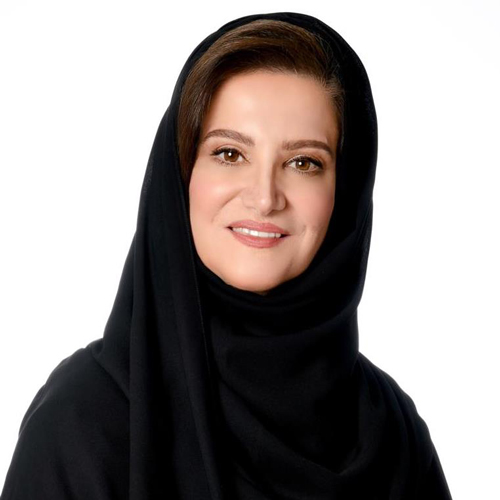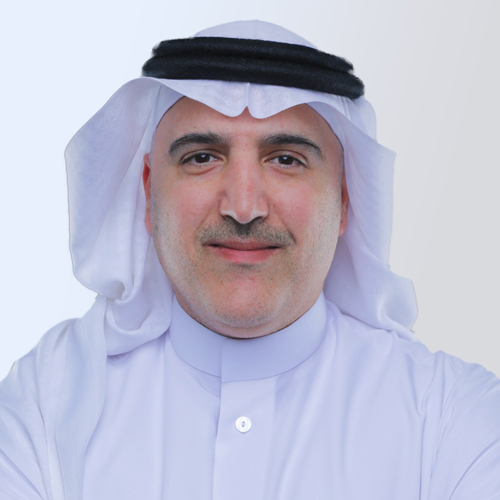Agenda

-
Speaker:
-

Maha Akeel
-

-
Speaker:
-
H.E. Dr. Muhammad Sulaiman Al Jasser
Chairman
Islamic Development Bank (IsDB) Group
-


-
IsDB Group entities’ solid partnership with a wide range of private and public stakeholders plays a crucial role in enhancing Member Countries’ resilience, addressing common challenges, achieving shared goals, and creating innovative solutions for sustainable development. Building resilience through multi-sector partnerships can strengthen communities' capacity to withstand and recover from shocks, promoting long-term sustainability and well-being. The side event will showcase how partnerships with the private sector are central to IsDB Group’s private sector strategy. By combining its diverse products and expertise in trade finance, risk mitigation, credit enhancement, and long-term financing instruments, IsDB Group’s entities maximize the Group’s value proposition by delivering on its mandates. The session will
- Discuss concrete cases of effective public and private partnerships in times of crisis
- Present example of IsDB Group’s private sector entities synergies
- Seek collaborations with private sector institutions to address development issues
- Explore the perspectives of IsDB member countries’ private sector collaborations with Multilateral Development Institutions
Moderator:
-
Muna AbuSulayman
Debators:
-
H.E. Oussama A. Kaissi
Chief Executive Officer
Islamic Corporation for Insurance of Investment and Export Credit (ICIEC)
-
H.E. Eng. Hani Salem Sonbol
Chief Executive Officer
International Islamic Trade Finance Corporation (ITFC)
Acting Chief Executive Officer
The Islamic Corporation for the Development of the Private Sector (ICD) -
H.E. Dr. Rania A. Al-Mashat
Minister of International Cooperation
Ministry of International Cooperation, The Arab Republic of Egypt
-
H.E. Mohamed EL KETTANI
Chairman and Chief Executive Officer
Attijariwafa Bank Group

-
The Islamic Corporation for the Development of Private Sector (ICD) and Refinitiv, a London Stock Exchange Group business, are proud to present the key findings of the OIC Infrastructure Outlook Report 2023. This presentation will outline the key highlights and insights from the report to help guide policymakers and other key stakeholders in OIC member states. The presentation will provide an overview of the OIC infrastructure landscape, including the size of the infrastructure gap till 2040, regional and sector-based analysis, key challenges and opportunities, and the role Islamic finance can play to address the gap.
Speaker:
-
Tayyab Ahmed
Senior Research Analyst
London Stock Exchange Group
Speaker Presentation
-

-
The objective of this session is to share and inform about the variety of green, social, sustainable and/or climate change financial instruments that development banks and financial institutions make available to advance their contribution to the United Nations Sustainable Development Goals (SDGs) by 2030. The side event is relevant given the gravity of the climate crisis and its impact on member countries. According to the Intergovernmental Panel on Climate Change (IPCC), measures to limit the impact of climate change must be prioritized because delayed action risks triggering consequences that are catastrophic. Given the urgent needs, international institutions, including the IsDB Group, must prioritize catalyzing investments using a variety of financial instruments for green growth and sustainable development to fend off this crisis. On this front, scaling up private capital is crucial by using innovative financing instruments, broadening the investor base, expanding the involvement of multilateral development banks and development finance institutions, and strengthening climate information. A recent KAPSARC study summarizing the required level of global transition investment to keep up with the net zero ambitions under Paris-aligned scenarios indicates that, on average, the world needs $ 4-5 trillion every year until 2050. However, the same study shows that all the countries are lagging on the sustainable investment and finance agenda, where the investment gaps are strikingly high in developing countries. More importantly, the current level of sustainable finance flows is less than the needs, less than one-fourth of the transition investment requirements.
Speaker:
-
Amadou Hott
Special Envoy and global champion for the Alliance for Green Infrastructure in Africa (AGIA)
African Development Bank Group
Moderator:
-
Aurélien Vincent
Partner
Strategy &
Panelists:
-
Fatih Yilmaz
Research Fellow
King Abdullah Petroleum Studies and Research Center
Speaker Presentation -
Dr. Rabah Arezki
Senior Fellow
Harvard University
-
M Asheque Moyeed
Acting Director, Banking Department
Islamic Corporation for the Development of the Private Sector (ICD)
-
Susan Olsen
Unit Head – Private Sector, Financial Institutions
Asian Development Bank
-
Khalifa Sarr
Head of the Office of the Special Envoy
Alliance for Green Infrastructure in Africa
-


-
As we approach the halfway mark of the 2030 Agenda for Sustainable Development, we will need to pay special attention to the relationship between Public and Private actors to ensure resilient and high-quality delivery of projects and services that help contribute to the SDG targets and support sustainable economic growth. The event aims to provide a high-level interactive platform for key stakeholders to exchange views and ideas aimed at promoting Public and Private sector interaction towards the implementation of positively contributing service delivery initiatives that will help support aspirations towards the 2030 Agenda for Sustainable Development. In this session, the objectives will be to:
- Discuss how has the relationship between the Public and Private sectors evolved and what challenges does it face to contribute to a more inclusive and sustainable development.
- Promote discussion between government officials, private sector practitioners, think-tank representatives, and policymakers on the benefits of a healthy relationship between the Public and Private sectors; and
- Identify the new roles and responsibilities that will be required of Public and Private sector actors to uplift the service delivery of projects to societies.
Moderator:
-
Dr. Mohammed Alyami
Director Development Effectiveness Office
The Islamic Corporation for the Development of the Private Sector (ICD)
Panelists:
-
HE. Dr. Ghassan Alsulaiman
Chairman
National Center for Family Businesses
-
Eng. Abdullah AlRakhis
Chairman
Al Madinah Institution for Policy
Speaker Presentation -
Dr. Abdulrahman Alkhayal
Chairman
Saudi Cables Company
-

Mr. Abdulaziz Almulhim
Vice President
National Center for Privatization

-
The Objective of the session is to introduce the KSA SMEs Export Empowerment Program to potential partners and beneficiaries. The session will be an opportunity to raise awareness on different services available to exporting Saudi SMEs under the umbrella of the program, which will contribute to achieving 2 key objectives of vision 2030:
- Increase the share of KSA SMEs Export in the GDP,
- Increase the percentage of non-oil exported products in KSA’s total exports.
-
Speaker:
-
Eng. Nasser Al Thekair
General Manager of the Trade & Business Development Department
International Islamic Trade Finance Corporation (ITFC)
-
-
Speaker:
-
H.E. Eng. Saad Bin Abdulaziz AlKhalb
Chief Executive Officer
Saudi Exim Bank
-
H.E. Mr. Sami Ibrahim Alhussaini
Governor
Small and Medium Enterprises General Authority (Monsha’at)
-
H.E. Eng. Hani Salem Sonbol
Chief Executive Officer
International Islamic Trade Finance Corporation (ITFC)
Acting Chief Executive Officer
The Islamic Corporation for the Development of the Private Sector (ICD)
-

-
The three sessions will highlight forging sustainable partnerships to promote trade and investment with a focus on the following:
- Promoting cross-border investment and trade among IsDB Member Countries to be supported by IsDB Group's offering
- Deployment of Insurance products and services in Member Countries
- Promoting ICIEC's role in the member countries and announcing new projects planned for 2023 and beyond
- Sharing an update on ICIEC's launched projecting and their impact on the member countries.
- Attracting foreign direct investment (FDI) to Member Countries and opening new markets for investors
- Focusing on key challenges for the year 2023 and outlining a preparedness plan
- To support our MCs to access global markets, the collective partnership between ICIEC and other MDBs, private and public financiers & insurers, and relevant stakeholders, will be looking at promoting the investment flows from both the public and private spheres.
- Highlighting key topical areas of agriculture & food security, climate change, green economy, innovation, and tourism.
- Enabling partnerships between public and private sector players to enhance sustainable trade and investment.
-
Speaker:
-
H.E. Oussama A. Kaissi
Chief Executive Officer
Islamic Corporation for Insurance of Investment and Export Credit (ICIEC)
-
-
Speaker:
-
H.E. Mr. Bahlil Lahadalia
Minister of Investment/Chairman
Investment Coordinating Board (BKPM) of the Republic of Indonesia
Speaker Presentation
-
-
Speaker:
-
Mr. Nurul Ichwan
Deputy Minister for Investment Promotion
Ministry of Investment/Indonesia Investment Coordinating Board (BKPM)
Speaker Presentation -
Mr. Belal Hammouri
Director of Investment Promotion
Ministry Of Investment, Hashemite Kingdom of Jordan
Speaker Presentation -
Ms. Fatimetou Bellamech
Director of the One-Stop Shop
Investment Promotion Agency of Mauritania (APIM)
Speaker Presentation -
Zohrab Gadirov
Deputy Executive Director
Export and Investment Promotion Agency of the Republic of Azerbaijan - AZPROMO
Speaker Presentation
Moderator:
-
Cornelia Meyer
Chairman and Chief Executive Officer
MRL Corporation
Chairman and Chief Economist
LBV Asset Management
-
-
Moderator:
-
Cornelia Meyer
Chairman and Chief Executive Officer
MRL Corporation
Chairman and Chief Economist
LBV Asset Management
Panelists:
-
Eng. Sayed El-Wazir
Board Member
The Arab Contractors
-
Oskar Henkelman
Director Credit Risk, Trade & Export Finance
Royal Boskalis b.v.
-
Selim Bora
Chairman
Summa Construction
-
Mohamed EL Ansary
Group Treasury and Corporate Finance Director
Elsewedy Electric Group
-
-
Moderator:
-
Cornelia Meyer
Chairman and Chief Executive Officer
MRL Corporation
Chairman and Chief Economist
LBV Asset Management
Panelists:
-
Lotfi Zairi
Manager of Sovereign Operations
The Islamic Corporation for the Insurance of Investment & Export Credit (ICIEC)
-
Afolabi Obisesan
Senior Manager, Guarantees and Specialised Finance
Afreximbank
-
Walid Sarieddine
Executive Director, Head of Islamic Finance
Sumitomo Mitsui Banking Corporation
-
Yves Jacob
Managing Director, Global Head of Public Sector
SOCIETE GENERALE
-


-
As part of the 2023 PSF Private Sector Forum, the IsDB Group Annual Meeting in conjunction with PSF across AM is hosting its PSF Startups Competition 2023 for Member countries (MC) Startups. The competition is targeted toward Digital SMEs and startups that are looking to facilitate the delivery of digital, cross-border, interoperable, and cross-domain services, and solutions, while also accelerating their digitally enabled growth. The Startups Competition will award innovators, entrepreneurs, and startups for developing solutions through products and services while creating a positive impact on Member countries. To Register, please visit: https://idea.untapcompete.com/



-
The main objective of this event is to share experiences, success stories & best practices in promoting Halal Industry and to discuss ways and means and innovative solutions to promote investment and intra-trade opportunities in Halal Sectors among the Member Countries (MCs) and at the Global level. The Halal Event is a component of the IsDB Group Private Sector Forum which will be organized on the sidelines of the 48th IsDB Annual Meeting to be held from 11 to 13 May 2023 and will be composed of three sessions (1) An Opening session which will include keynote statements from IsDB Management and High Level Officials and Decision Makers in Halal Industry in Member and Non Member Countries of IsDB, (2) A Panel Session on promotion of investments and intra-trade in Halal Industry which will discuss Challenges facing Intra-Trade of Halal products among IsDB Member Countries and Investment Opportunities in Halal Industry as well as Strategies and Policies for promoting Intra-Trade and Investment in Halal Sectors and (3) A panel session on Innovations in Halal Industry including Digital Transformation in Halal Manufacturing Processes, New Applications for Halal Verifications and New Technologies for Promoting Halal Products. The Panellists and Moderators are Eminent Experts, CEOs and High Level Representatives of OIC, Public and Private Institutions operating in the Halal Industry.
-
Speaker:
-
Amer Bukvic
Acting Director General Global Practice & Partnerships
Islamic Development Bank (IsDB)
-
Fahad Al Nuhait
Chief Executive Officer
Halal Products Development Company, KSA
-
Husein Kavazović
Reis ul Uleman
Bosnia, Croatia, Slovenia, Serbia
-
Perry Warjiyo
Governor
Bank Indonesia, Bank of Indonesia
Speaker Presentation -
Hairol Ariffein Sahari
Chief Executive Officer
Halal Development Corporation HDC, Malaysia
-
Muhammadu Dikko Ladan
Chief Executive Officer
Dar Al Halal Nigeria
-
-
Moderator:
-
Mohamed Ali Merchaoui
Managing Director of Halal Product Advisory
Halal Products Development Company
Panelists:
-
Ameen Al Saadi
Chief Investment Officer
Halal Products Development Company
-
Afdhal Aliasar
Director Halal Product Industry
National Committee for Islamic Economy and Finance, Republic of Indonesia (KNEKS)
-
Ahmed S. Osilan
Executive Board Member & Managing Director
Tanmiah Company
-
Arshad Mohamed Ismail
Chief Executive Officer
EXIMBANK Malaysia
-
Musaad Aloabidi
CEO Senior Advisor
Saudi Exports Development Authority
-
-
Moderator:
-

Dr Marco Tieman
Chief Executive Officer
LBB International
Panelists:
-
Hamzah Kassim
Chairman
Hong Leong Islamic Bank
-
Adly Mohamed
Chief Commercial Officer
Halal Development Corporation Malaysia
-
Amnah Shaari
Chief Executive Officer
Serunai Commerce
-
Ilham Habibie
Co-Founder
PT ILTHABI Rekatama Indonesia
-
-
Speaker:
-
Ihsan Ovut
Secretary General
Standards And Metrology Institute For Islamic Countries (SMIIC)
-
Latifa El Bouabdellaoui
Director General
Islamic Center for Development of Trade (ICDT)
-


-
Countries can utilise the public-private partnership (PPP) model to execute large scale infrastructure projects that will reduce the financial burden on the governments to fund these projects, where the private sector brings in the financial and technical resources. The world needs a cleaner, more sustainable energy system. Private sector plays a very important role in green transition. It is not possible for the country to create a greener environment with the efforts of the public sector alone. The private sector is typically more efficient, more cost-effective and can deliver very innovative solutions, and is very uniquely positioned because it can accept investments commercially and upscale very, very quickly. On the other hand, the private sector cannot make green transition happen without the collaboration with the government. In short, we need a coalition of public and private sector actors, and PPPs offer a solution, with tremendous opportunities for PPPs in accelerating the green energy transition within IsDB’s member countries. The Islamic Development Bank (IsDB) is committed to supporting the participation of private sector investments in its member countries through PPP infrastructure project financing. To further discuss this, the Bank’s PPP Division is organising a side-event on “Transitioning Towards a Sustainable Future Through PPPs” to share the best practices implemented by governments, developers and DFIs in developing and implementing green energy infrastructure, while also shedding light on the bankability of new technologies to fast-track the clean energy agenda within the developing and emerging markets. The session aims to:
- Share lessons learned and best practices from implementation of PPPs in IsDB member countries
- Better understand the roles, responsibilities and expectations of governments, developers and development financing institutions for a successful PPP transaction
- Increase awareness about the bankability of new technological developments in energy sector to accelerate the transition towards green energy
Moderator:
-
Mohammed Alsayed
Manager, PPP Division
Islamic Development Bank (IsDB)
Panelists:
-
Mohammed Alemam
Business Development Manager KSA
EDF Group (Electricity de France)
-
Line Bitar
Senior Manager, Acquisitions & Project Finance
ACWA Power
-
Shashank Rath
Partner
Synergy Consulting
-
Kenan Jusufspahic
Lead PPP Investment Officer, PPP Division
Islamic Development Bank (IsDB)
-
Muhammad Imaduddin
PPP Portfolio Manager, PPP Division
Islamic Development Bank (IsDB)